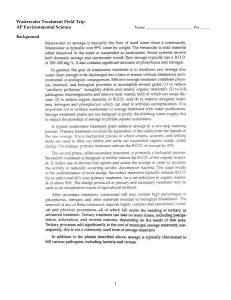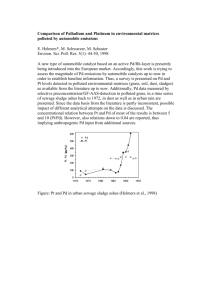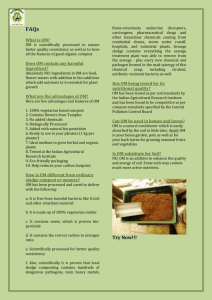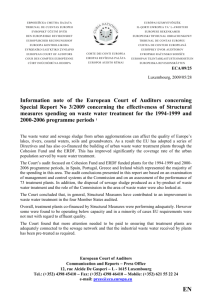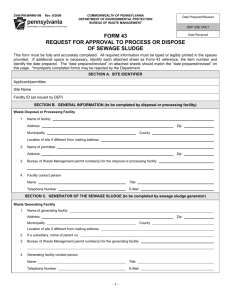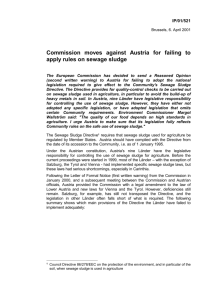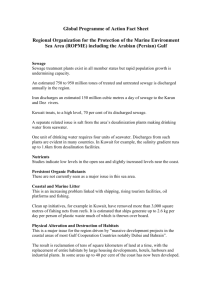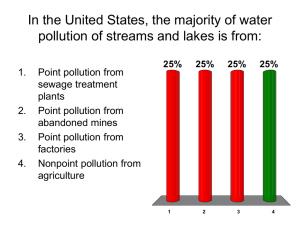Sewage Sludge - Reading-Berks Association of Realtors
advertisement
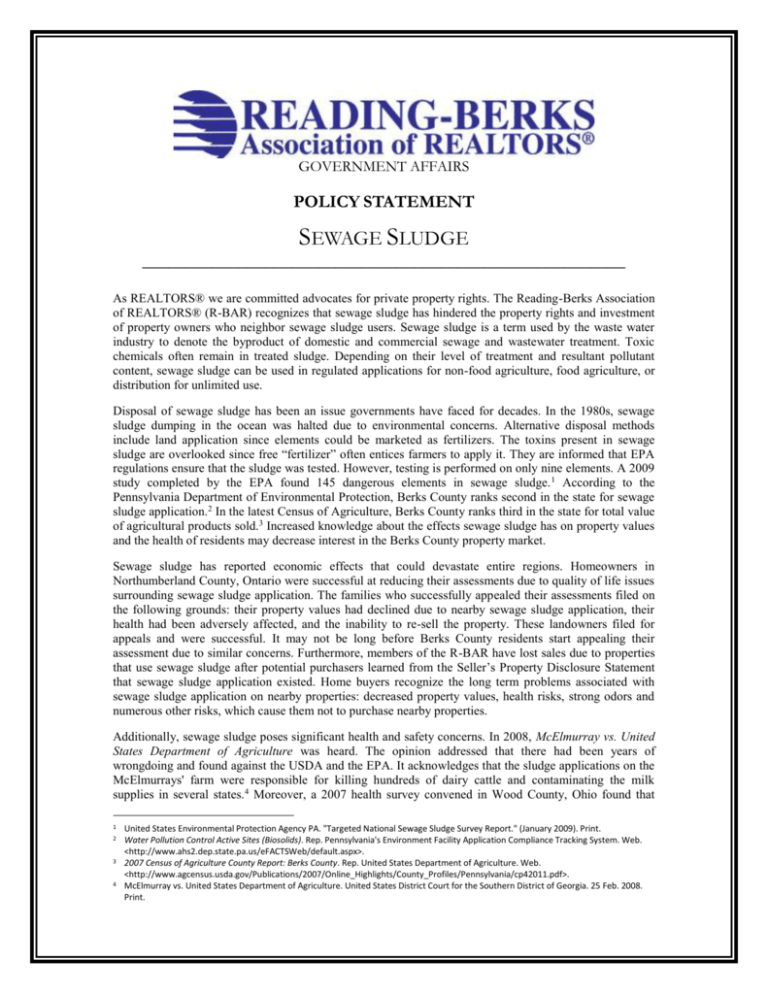
GOVERNMENT AFFAIRS POLICY STATEMENT SEWAGE SLUDGE _______________________________________________________ As REALTORS® we are committed advocates for private property rights. The Reading-Berks Association of REALTORS® (R-BAR) recognizes that sewage sludge has hindered the property rights and investment of property owners who neighbor sewage sludge users. Sewage sludge is a term used by the waste water industry to denote the byproduct of domestic and commercial sewage and wastewater treatment. Toxic chemicals often remain in treated sludge. Depending on their level of treatment and resultant pollutant content, sewage sludge can be used in regulated applications for non-food agriculture, food agriculture, or distribution for unlimited use. Disposal of sewage sludge has been an issue governments have faced for decades. In the 1980s, sewage sludge dumping in the ocean was halted due to environmental concerns. Alternative disposal methods include land application since elements could be marketed as fertilizers. The toxins present in sewage sludge are overlooked since free “fertilizer” often entices farmers to apply it. They are informed that EPA regulations ensure that the sludge was tested. However, testing is performed on only nine elements. A 2009 study completed by the EPA found 145 dangerous elements in sewage sludge. 1 According to the Pennsylvania Department of Environmental Protection, Berks County ranks second in the state for sewage sludge application.2 In the latest Census of Agriculture, Berks County ranks third in the state for total value of agricultural products sold.3 Increased knowledge about the effects sewage sludge has on property values and the health of residents may decrease interest in the Berks County property market. Sewage sludge has reported economic effects that could devastate entire regions. Homeowners in Northumberland County, Ontario were successful at reducing their assessments due to quality of life issues surrounding sewage sludge application. The families who successfully appealed their assessments filed on the following grounds: their property values had declined due to nearby sewage sludge application, their health had been adversely affected, and the inability to re-sell the property. These landowners filed for appeals and were successful. It may not be long before Berks County residents start appealing their assessment due to similar concerns. Furthermore, members of the R-BAR have lost sales due to properties that use sewage sludge after potential purchasers learned from the Seller’s Property Disclosure Statement that sewage sludge application existed. Home buyers recognize the long term problems associated with sewage sludge application on nearby properties: decreased property values, health risks, strong odors and numerous other risks, which cause them not to purchase nearby properties. Additionally, sewage sludge poses significant health and safety concerns. In 2008, McElmurray vs. United States Department of Agriculture was heard. The opinion addressed that there had been years of wrongdoing and found against the USDA and the EPA. It acknowledges that the sludge applications on the McElmurrays' farm were responsible for killing hundreds of dairy cattle and contaminating the milk supplies in several states.4 Moreover, a 2007 health survey convened in Wood County, Ohio found that 1 2 3 4 United States Environmental Protection Agency PA. "Targeted National Sewage Sludge Survey Report." (January 2009). Print. Water Pollution Control Active Sites (Biosolids). Rep. Pennsylvania's Environment Facility Application Compliance Tracking System. Web. <http://www.ahs2.dep.state.pa.us/eFACTSWeb/default.aspx>. 2007 Census of Agriculture County Report: Berks County. Rep. United States Department of Agriculture. Web. <http://www.agcensus.usda.gov/Publications/2007/Online_Highlights/County_Profiles/Pennsylvania/cp42011.pdf>. McElmurray vs. United States Department of Agriculture. United States District Court for the Southern District of Georgia. 25 Feb. 2008. Print. “some reported health-related symptoms were statistically significantly elevated among…exposed residents.”5 Similar concerns may arise locally in Berks County in the future if nothing is done to halt the application, or to test it correctly to ensure all health risks are eliminated. The long term effects of consuming products from farms using sewage sludge could be hazardous. This issue is most effectively governed on a state and federal level. Appropriate legislation must pass to protect the property rights of those individuals who are adversely affected by the actions of property owners who sludge a neighboring property. Conversely, there are innovative methods of disposing sewage sludge that local municipalities are investigating. Exposing sludge to extreme heat causes it to “dry” which could then be sold for alternative energy purposes. These techniques can be used to combat environmental concerns with land application of dangerous sewage sludge. Private property rights are a cornerstone for our democracy. However, neighbors and community resident’s property rights must also be addressed. By opposing sewage sludge application, we are ensuring the rights of those home owners who are invested in their private property, while maintaining positive interest in the Berks County housing market. 5 Sadik, PhD, Khuder, Sheryl A. Milz, PhD, Michael Bisesi, PhD, Robert Vincent, PhD, Wendy McNulty, MS, and Kevin Czajkowski, PhD. Health Survey of Residents Living Near Farm Fields Permitted to Receive Biosolids. Rep. Archives of Environmental & Occupational Health, Vol. 62, No. 1, 2007. Print.
